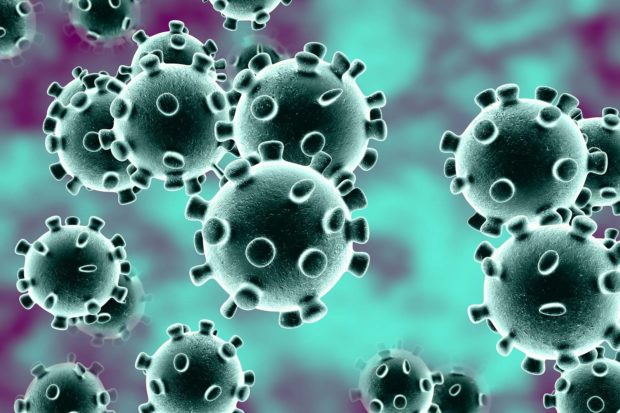
Kasaragod: Second wave of COVID-19 can be tackled, says senior cop
Team Udayavani, May 12, 2020, 12:29 PM IST

Kasaragod: Kerala’s Kasaragod district, one of the first COVID-19 hotspots in India, turned coronavirus-free on Sunday, May 10.
The north Kerala district, which lacked improved health infrastructure compared to others in the state, had witnessed zero death. But the relief was short-lived as fresh coronavirus cases were reported from the district on Monday, May 11.
Four people who had arrived from Maharashtra were found infected with the deadly virus, commencing the second wave of COVID-19 in the district.
However, top police official Vijay Sakhare, whose “triple lock” strategy helped the district keep the virus at bay, said there was nothing to worry as the situation could very well be managed by implementing the same strategy forcefully.
The triple lock involves a combination of technology and human surveillance and restricting movement of people in three stages.
While Lock-I envisages broader restriction of movement of all people residing in the district, Lock-II is for people living in distinct geographical areas with positive cases and the third stage is targeted effort to keep primary and secondary contacts of COVID-19 patient in their homes.
The IG ranking officer who was deputed by Chief Minister Pianarayi Vijayan as COVID-19 special officer of Kasaragod on March 23, implemented the triple lock strategy and this effective policing measure helped arrest the spread of the virus.
The same strategy was implemented in neighbouring Kannur district and earned positive results when it was turning to become another COVID-19 hotpspot.
In a note prepared by Sakhare on “triple lock strategy”, he spoke of the new challenges after people returning through inter-state land borders, including those from red-zones have been permitted to undergo 14 day quarantine at their homes.
The international returnees have been asked to observe mandatory quarantine in institutional centres or hotels.
“Many of these evacuated persons may turn COVID positive after returning home. Some of them may be symptomatic carriers of COVID-19 and a few may be asymptomatic.
In order to meet these challenges and prevent spread of infection in community, ‘triple-lock’ strategy has to be scaled up,” the officer said in the note.
“The new returnees to Kasaragod have to be brought under the umbrella of Lock-III,” said Sakhare, the Kochi City Police Commissioner who returned from Kasaragod last week after completion of his special assignment.
Talking to PTI, he said the residences of the returnees should be monitored continuously by stationing police guards in front of select houses, by covering residences of home quarantined people with mobile patrols, which check physical presence of the person at least twice a day.
This would be done by deploying drones in ‘drone-beat’ over these homes and by using COVID-Safety app.
Legal action should be initiated against the violators and their family members for endangering the lives of others in the society, the senior IPS officer said.
Another challenge is to ensure that those people who stay at ‘institutional quarantine centres’ observe quarantine properly and do not socialise with each other.
An officer at least of the rank of Sub-inspector should be made in-charge of the centre. He should ensure that no person visited any of the inmates or no inmates stepped out at any point of time.
The COVID Safety app should be installed in every inmate’s phone to ensure that the person does not violate quarantine, Sakhare said.
Similar system should be in place in hotels as well. The hotel staff has to be trained in maintaining quarantine and ensuring that it was observed by the returnees.
Sharing his experience as the COVID-19 officer in Kasaragod district, Sakhare said the results of the triple lock strategy have demonstrated that it was extremely successful in containing the spread of virus.
“The success of strategy can be gauged from the fact that it has brought weekly reporting of cases from 64 to barely 5 with in the span of three weeks – a reduction of 92 per cent.
In succeeding three weeks, only 5,4 and 2 positive cases were reported and in last 11 days since 1st May, no positive cases were reported- which demonstrates the resounding success of the containment strategy,” he claimed.
The last Corona positive patient of the first wave of COVID-19 in Kasaragod recovered on May 10 and the district became COVID-free. But few hours later, the second wave of the disease has begun and the district is prepared to meet the challenge.
Udayavani is now on Telegram. Click here to join our channel and stay updated with the latest news.
Top News

Related Articles More

Abducted and sold at 8, woman reunites with family after 49 years

Annamalai whips himself in vow to seek justice in Anna University case

Theatre stampede case: Actor Allu Arjun appears before court virtually, files regular bail petition

Karnataka HC directs registrar to issue revised birth, death certificates for transgenders

Locals recall Manmohan Singh’s special bond with Amritsar
MUST WATCH
Latest Additions

Actor Naveen D. Padil to received Vishwaprabha Award 2025

Gold jumps Rs 350 to Rs 79,200 per 10 gm; silver surges Rs 900

Traffic control measures implemented in Udupi: Will they be effective?

Kuloor: Highway repair to begin soon after pipeline work causes subsidence

Osamu Suzuki, who ignited Indian automobile industry passes away at 94
Thanks for visiting Udayavani
You seem to have an Ad Blocker on.
To continue reading, please turn it off or whitelist Udayavani.




















